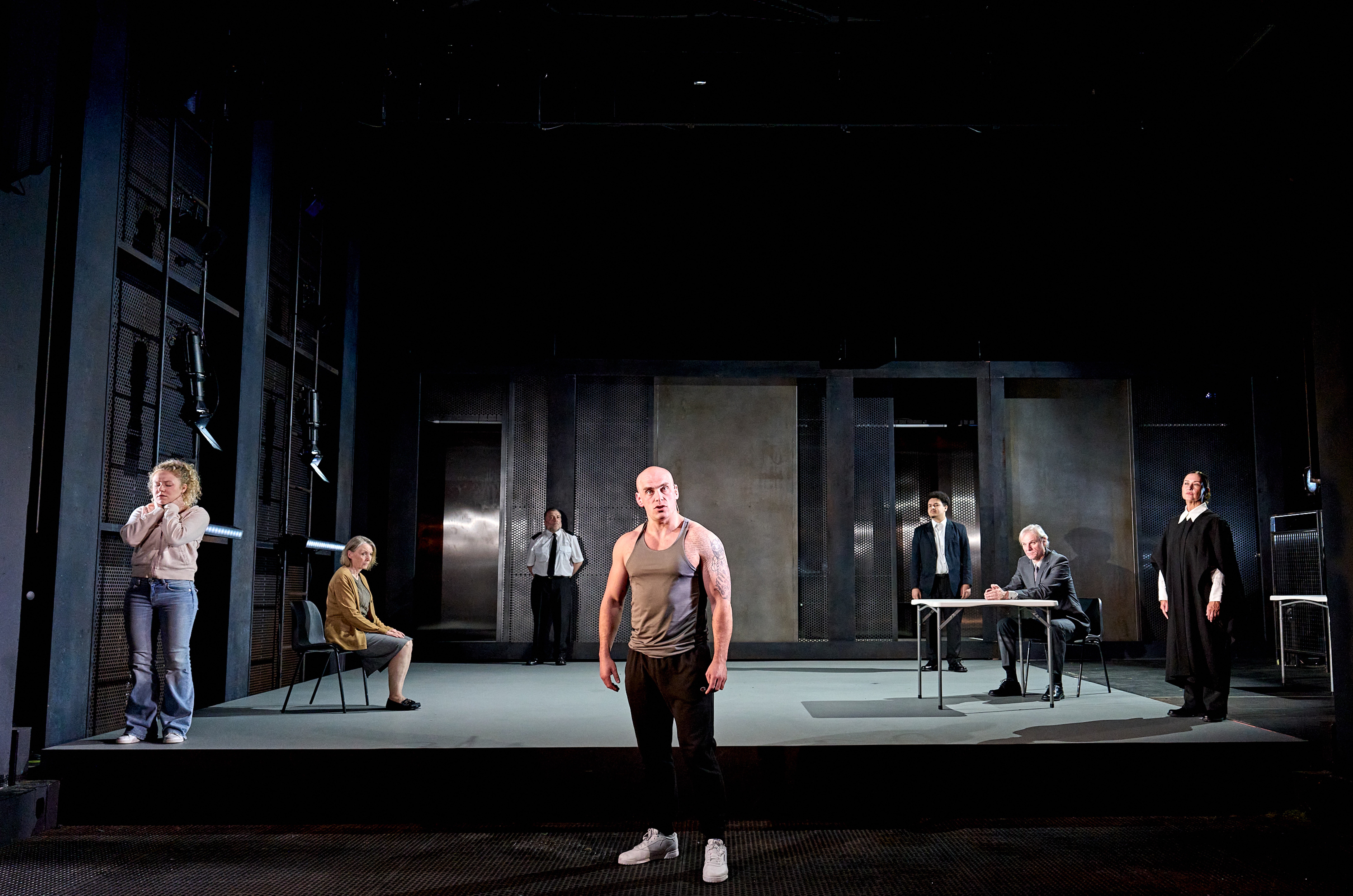
When fugitive Raoul Moat went on a shotgun-toting rampage round the North-East in the summer of 2010, a media frenzy erupted – assuming new lurid hues when addled ex-footballer Paul Gascoigne, aka Gazza, turned up for a blokey chat with him mid-standoff, clutching cans of lager, some chicken, and two fishing rods (he was turned away by the police, of course). The whole thing seemed too bizarre, too inexplicable to take entirely seriously, though the casualties were very real.
Incisive writer-director Robert Icke’s take on the story lands like a glass of cold water, thrown into our collective faces. Bracing. A belated antidote to all that hysteria. But somehow it lacks Icke’s usual ability to winnow complex source material into one, coherent message.
Icke’s 2024 reimaging of Oedipus just won big at the Oliviers, after taking audiences on an agonisingly tense journey through a Greek classic, with a giant onstage digital clock counting down the seconds to calamity. Manhunt is tense, too: but there’s something forced about its tension, like we’re being strapped into our seats for a Clockwork Orange-style dose of aversion therapy, with sudden blackouts, percussive sound, and hyper-violence.
A screen counts down the days of Moat’s paranoid vendetta against Northumbria Police, attempting to give structure and order to his muddled mental state after leaving prison. Samuel Edward-Cook’s effective performance brings a constant sense of suppressed violence to this troubled man, so it’s no shock when he flips tables or throttles his ex-girlfriend Samantha (Sally Messham). He believes that her new boyfriend is a policeman, so he shoots him dead, then takes to the Northumbrian wilds with two mates who call themselves “hostages”, reemerging to shoot another officer in the face. It’s just like playing Doom, he tells us.
Icke is intensely interested in Moat’s psychology, and in the task of making him more than a ripped video game assassin. But it feels like his approach tells us too much – in detailed, therapy-like conversations between this man and a barrister who’s attempting to understand him – and shows us too little. Everyone around Moat is so thinly drawn, whether it’s the fragile mother with bipolar who burns his toys, or the social worker who takes away his kids, or the ex-girlfriend who’s unhelpfully portrayed here as goading him into more violence. He’s been let down, it’s clear. But by who, exactly?

Moat’s story is full of the kind of coincidences and resonances you couldn’t make up. He collides with other troubled men, just like him, who hurt the women in their lives and are drawn to mess and self-destruction. Perhaps you could build some kind of thesis on toxic masculinity out of these parallels – or on social deprivation in the North East, or on police mismanagement. But instead of trying to understand these structural factors, Manhunt ducks and weaves around the line between truth and fiction, creating intriguing parallel realities. Could Gazza actually have talked Moat down? What if Moat’s estranged father had been allowed to speak to him in those final moments before he shot himself, instead of being sent away by the police as he was?
Icke’s boldest stroke is to have Moat’s child self appear on stage alongside him, a lovable little red-haired kid who wants to grow up to be big and strong. It’s a reminder that no one is born a monster, that no one’s path is set. But this message is undermined by an unsparingly brutal depiction of the adult Moat, who’s so constantly ready to break out into violence (even towards his own kids) that it’s hard to imagine the world that could rehabilitate him.
Manhunt is completely engrossing to watch, like watching a tiger prowl up and down in its cage – Hildegard Bechtler’s set design creates a metal prison for this trapped man. But like a mismanaged zoo, it’s ultimately not as compassionate as it makes itself out to be.
On at Royal Court theatre until 3 May; tickets and information here







